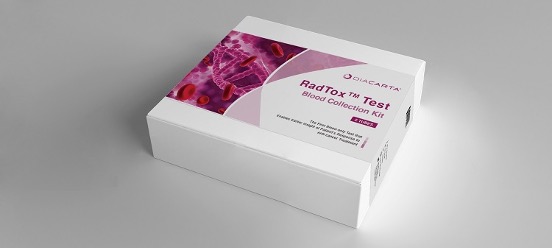Groundbreaking Test Monitors Radiation Therapy Toxicity in Cancer Patients
March 20, 2024
Source: drugdu
 615
615
 The concentration of circulating cell-free DNA (cfDNA) in the bloodstream is an important indicator that can help track how well cancer treatments are working. Before starting treatment, measuring cfDNA levels can give doctors a snapshot of the extent of the cancer’s spread in the body. High levels of cfDNA often mean the cancer is widespread or aggressive. As treatment goes on, doctors can keep an eye on cfDNA levels to see if the treatment is effective. A drop in cfDNA levels could mean the treatment is working and the tumor is getting smaller. But if cfDNA levels remain unchanged or rise, it might mean the treatment isn't working, and the cancer is still growing or has become resistant to treatment. Now, a simple blood test monitors this liquid biomarker in real time to track how well a cancer treatment is working.
The concentration of circulating cell-free DNA (cfDNA) in the bloodstream is an important indicator that can help track how well cancer treatments are working. Before starting treatment, measuring cfDNA levels can give doctors a snapshot of the extent of the cancer’s spread in the body. High levels of cfDNA often mean the cancer is widespread or aggressive. As treatment goes on, doctors can keep an eye on cfDNA levels to see if the treatment is effective. A drop in cfDNA levels could mean the treatment is working and the tumor is getting smaller. But if cfDNA levels remain unchanged or rise, it might mean the treatment isn't working, and the cancer is still growing or has become resistant to treatment. Now, a simple blood test monitors this liquid biomarker in real time to track how well a cancer treatment is working.
DiaCarta’s (Pleasanton, CA, USA) RadTox Test is a liquid biopsy test designed to monitor tumor response and progression by observing changes in cfDNA levels. This test is crucial for determining early on if a patient's treatment plan is effective, helping avoid unnecessary side effects. The RadTox Test uses DiaCarta's unique QuantiDNA Direct cfDNA Test technology to measure cfDNA concentrations in a blood sample without the need for sample purification. This method allows doctors to quickly assess how well a treatment is working. With this information, doctors can adjust treatments in a more accurately and timely manner than before.
The RadTox Test is particularly useful during various treatments, including radiation, chemotherapy, immunotherapy, and other cancer therapies, monitoring cfDNA levels throughout the entire course of treatment. This provides early insights into how the cancer is responding to treatment, well before imaging tests might show changes, often three months after therapy starts. This timely feedback is crucial for making informed treatment decisions. Unlike traditional molecular residual disease (MRD) monitoring that only look for specific cancer mutations after treatment, the RadTox Test offers a broader perspective by tracking overall cfDNA changes. This gives doctors a clearer understanding of the treatment's impact, helping tailor care to each patient's needs.
"With just 10 microliters of plasma, our test has generated significant clinical data across a broad spectrum of cancer treatments," explained Dr. Aiguo (Adam) Zhang, President, and CEO of DiaCarta. "Our initial findings across 22 tumor types with over 250,000 samples performed globally demonstrate the immense potential of this pan-cancer monitoring test."
Source:
https://www.labmedica.com/immunology/articles/294800573/groundbreaking-test-monitors-radiation-therapy-toxicity-in-cancer-patients.html
Read more on
- Gusekirumab Injection Accepted by CDE, Multiple Pipelines Advancing Simultaneously March 4, 2026
- Yifan Pharmaceutical’s teriparatide injection has been accepted by the CDE (Center for Drug Evaluation), adding a new domestic player to the osteoporosis treatment field March 4, 2026
- //news.yaozh.com/archive/47318.html PD-1 sales surge March 4, 2026
- A major breakthrough! Roche’s oral BTK inhibitor achieves its third Phase III clinical trial victory, a game-changer in the multi-billion dollar MS (manufactured pharmaceuticals) market. March 4, 2026
- GB19 Injection Approved for Clinical Trials of Cutaneous Lupus Erythematosus March 4, 2026
your submission has already been received.
OK
Subscribe
Please enter a valid Email address!
Submit
The most relevant industry news & insight will be sent to you every two weeks.



